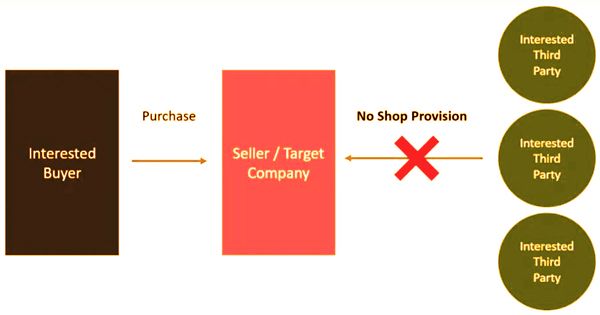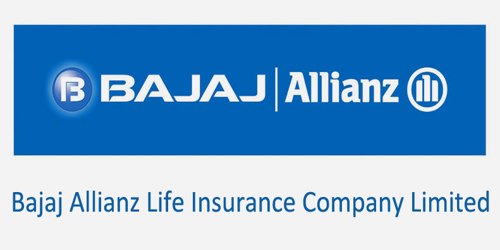A No Shop Provision (or Clause) is a condition remembered for an understanding between the vendor and the purchaser that keeps the dealer from requesting buy proposition from different gatherings for a given span of time. The time period for select dealings in a no-shop arrangement commonly goes from 45 to 90 days. In effect, after the signing of the Letter of Intent, the clause limits the vendor from finding any possible buyers of the company or asset. A break-up fee can be agreed in some cases if the buyer suspects that the seller can violate the no-shop clause and leave the buyer with all the dead-deal costs. The goal of the clause is to shield the fascinated customer from dropping the commercial enterprise because there are different involved parties who may additionally offer a better bid.
Big, high-profile businesses typically prescribe no-shop clauses, which are often called no-solicitation clauses. It is unlikely that, without a period of exclusivity, a buyer can work in good faith to close a deal. Usually, buyers comply with these provisions as an act of good faith. Gatherings that take part in a no-shop provision regularly incorporate a lapse date in the understanding. This implies they are just essential for a brief timeframe, and can’t be set inconclusively.
A no-shop provision accommodates the accompanying:

- That the target company stops all discussions with other interested buyers.
- That the target business ceases to provide third parties with any details relating to the plan of the original buyer.
- The information regarding any unsolicited bids from third parties is given by the target company.
Sellers should aim to restrict the initial no-shop period to the shortest possible duration, with the average exclusivity clause being 60 days. In addition, to calculate the progress towards closing, the seller should ensure that milestone dates are identified. Usually, a dominant buyer’s interest will in itself push up the company’s valuation and draw competition from other large buyers. In such cases, the purchaser acquaints the no shop arrangement with decrease rivalry, increments the assurance of finalizing the negotiation, and ensures their interests as far as cash, time, and assets focused on the exchange.
In mergers and acquisitions (M&A), no-shop clauses are usually included. From the point of view of the prospective buyer, it is very useful because it can deter the seller of the company or asset from requesting further deals, which can lead to a higher purchasing price or bidding war if there are several stakeholders. An established timeline for key dates should be in place, such as the drafting of the purchase and sale agreement, the completion of the funding, the final approval of the board, the finalization of the appraisals, etc. If a seller and a buyer choose to include in their agreement a no-shop clause, certain exceptions allow the seller to accept third-party offers.
Then again, the vendor may not need an unduly long no-shop period, particularly if there is a danger that the potential buyer will leave the arrangement during an endless supply of due persistence. Hence, regardless of whether chiefs concur on a no-shop arrangement with a purchaser, they actually have the option to acknowledge better proposition without being restricted by the arrangement assurance components that are now set up. As a good-faith gesture towards a buyer, particularly a buyer with whom a seller wishes to engage, a potential seller can agree to a no-shop clause.
For instance, to prevent its main rival, Salesforce, from getting involved in the deal, Microsoft implemented the no-shop clause. While the no-shop clause was upheld during the negotiations, by putting a higher unsolicited offer, it did not preclude Salesforce from demonstrating its interest in LinkedIn. Since LinkedIn had a duty of care to its stockholders to get the best offer possible for the company, Microsoft was forced to increase its bid.
There are sure situations where a no-shop provision may not matter in any event, when the two players sign one. Here and there, gatherings to exchange may join a few arrangement insurance systems to shield their offers. A public organization has money related duties to their investors and, accordingly, may hang tight for the most noteworthy bidder conceivable. Thus, they might be able to reject a no-shop agreement even though the board of directors of the company has signed one with a prospective buyer. The parties may employ break-up fees, lock-ups, stock options, and recommendation agreements in addition to no shop provisions.
Information Sources:
















